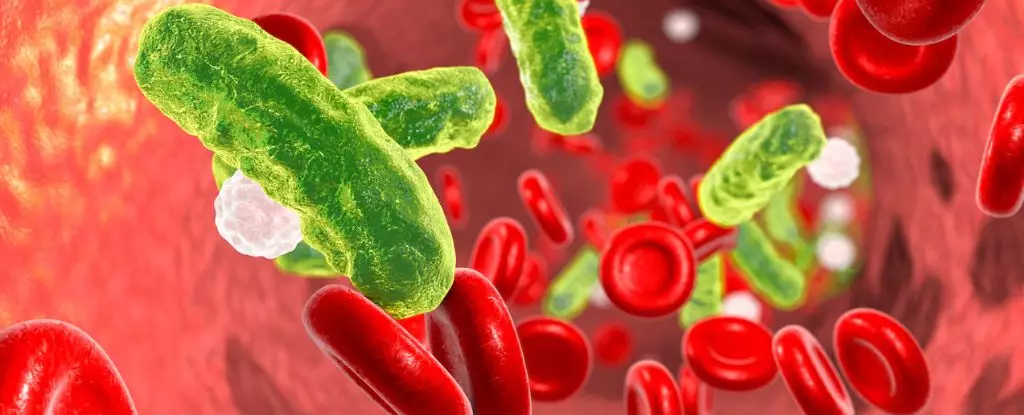The research conducted at Uppsala University in Sweden has led to the discovery of a new class of antibiotic that targets the double membrane surrounding gram-negative bacteria. Gram-negative bacteria, such as Escherichia coli and Klebsiella pneumoniae, pose a significant challenge in the medical field due to their resistance to traditional antibiotics. The outer membrane of these bacteria is embedded with lipopolysaccharides, which serve as a barrier against drug treatments. Scientists have long sought ways to disrupt this membrane to combat infections caused by gram-negative bacteria.
Unlike previous methods that targeted the lipid membranes of bacteria, the researchers at Uppsala University focused on an enzyme called LpxH, which is crucial for the synthesis of lipopolysaccharides in the outer membrane. By inhibiting this enzyme, the team was able to effectively reduce the number of drug-resistant bacteria in mice infected with E. coli and K. pneumoniae. The results showed that a single dose of the newly developed compounds could treat bloodstream infections in just four hours, demonstrating the potential of this approach in fighting life-threatening infections.
The initial compound, JEDI-1444, paved the way for the development of two more potent variations, EBL-3599 and EBL-3647. These compounds exhibited strong antimicrobial activity against a wide range of E. coli and K. pneumoniae isolates, regardless of their resistance genotype. This breakthrough is particularly significant as both bacteria are becoming increasingly resistant to existing antibiotics, leading to a rise in deaths from antibiotic-resistant infections globally.
The rise of antibiotic resistance poses a grave threat to public health, with drug-resistant infections ranking as the third leading cause of death worldwide in 2019. By 2050, it is estimated that ten million people will die annually from antibiotic-resistant infections if new treatments are not developed. The current arsenal of antibiotics available on the market largely consists of variations of drugs identified decades ago, highlighting the urgent need for innovative approaches like the one developed by the researchers at Uppsala University.
In 2017, the World Health Organization identified gram-negative bacteria as some of the most dangerous drug-resistant pathogens. E. coli and K. pneumoniae are among the bacteria at the top of this list, underscoring the critical importance of finding new ways to combat infections caused by these organisms. The breakthrough in targeting LpxH as a key enzyme in the synthesis of lipopolysaccharides has the potential to revolutionize the treatment of gram-negative bacterial infections and save countless lives in the face of increasing antibiotic resistance.
The discovery of a new class of antibiotics that targets drug-resistant gram-negative bacteria represents a significant milestone in the ongoing battle against antibiotic resistance. The innovative approach developed by the researchers at Uppsala University has the potential to transform the landscape of infectious disease treatment and improve outcomes for patients worldwide. As the threat of antibiotic resistance continues to grow, breakthroughs such as this offer hope for a future where effective treatments are available for even the most challenging infections.


Leave a Reply